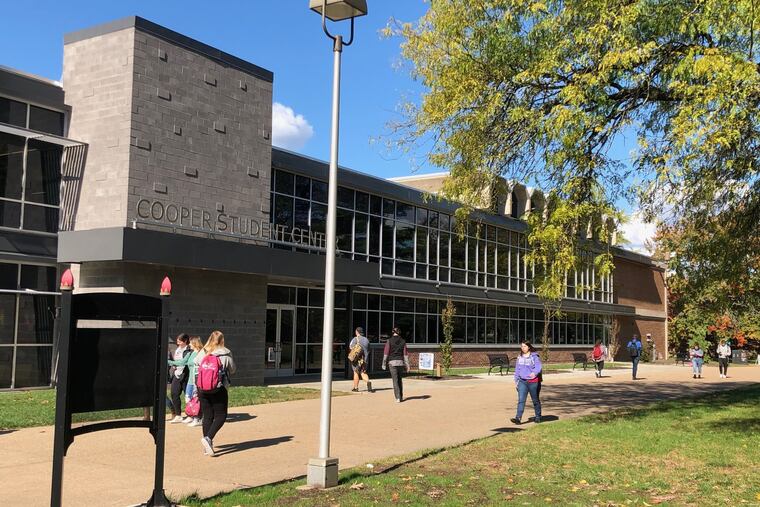Pa. college should look to N.J. on student mental health services | Editorial
Two New Jersey public school districts voted to spend more money on mental health services. But Pennsylvania's biggest community college has sought to save money by outsourcing these services.

Voters in two suburban New Jersey public school districts approved ballot measures Tuesday to invest in mental health services for their students. Kudos to Collingswood and Metuchen for OK’ing a modest boost in their local property taxes to raise money to better serve young people, especially in this era of heightened national concerns about student safety, as well as addiction, depression, and suicide among the young.
The forward-thinking message from New Jersey is in startling contrast to Harrisburg Area Community College (HACC), which has implemented an ill-conceived and ill-advised plan to reduce its $2.7 million budget deficit by $2.4 million through laying off 20 counselors and passing off student mental health services to outside providers. HACC, the largest community college in Pennsylvania, has 17,000 students across five campuses.
The college website claims that fewer than 1% of all students were using the on-campus service anyway, and insist that those who need it can be better and more directly served by referrals to other agencies. That makes sense up to a point, but the college wants any student in need of mental health services to seek out a dean of students first for referral to an off-campus service.
That means that a student who is depressed or struggling with substance abuse disorder and is seeking help on or through campus must first make a visit to a member of the school administration, which makes that the equivalent to a visit to the principal’s office.
Anyone even slightly familiar with the profoundly personal nature of a decision to seek assistance of this sort ought to realize that this process is likely to discourage some students who need immediate help from seeking it. This may be especially true of students in addiction to alcohol or drugs, a condition where interludes of willingness to accept treatment are often brief and anonymity is paramount.
In recent decades, awareness has grown that intelligent, sane, good people sometimes need help managing their mental health. But stigmas endure, and the notion of an administrator, however sympathetic, well-intended, or well-trained, acting as a sort of gatekeeper or traffic manager between a troubled student and help is questionable indeed. Worse, it shows a fundamental lack of sensitivity to the nature of mental health care.
HACC’s approach also seems at odds with the spirit of the School Safety Task Force Report, commissioned by Gov. Tom Wolf, which focused on Pennsylvania students in grades pre-K through 12 but did cite the importance of accessible counseling and other services. Wolf established the task force after the 2018 Parkland, Fla., high school shooting that claimed 17 lives; that mass shooting also led a New Jersey School Boards Association task force to produce a recent report on the value of mental health services in public schools.
There may or may not be a connection between the report and the Collingswood and Metuchen election results. But at least some New Jersey voters are certain that the mental health of students is a priority worth spending money on. HACC ought to look for savings somewhere else — or at least rethink their strategy for providing help to students.